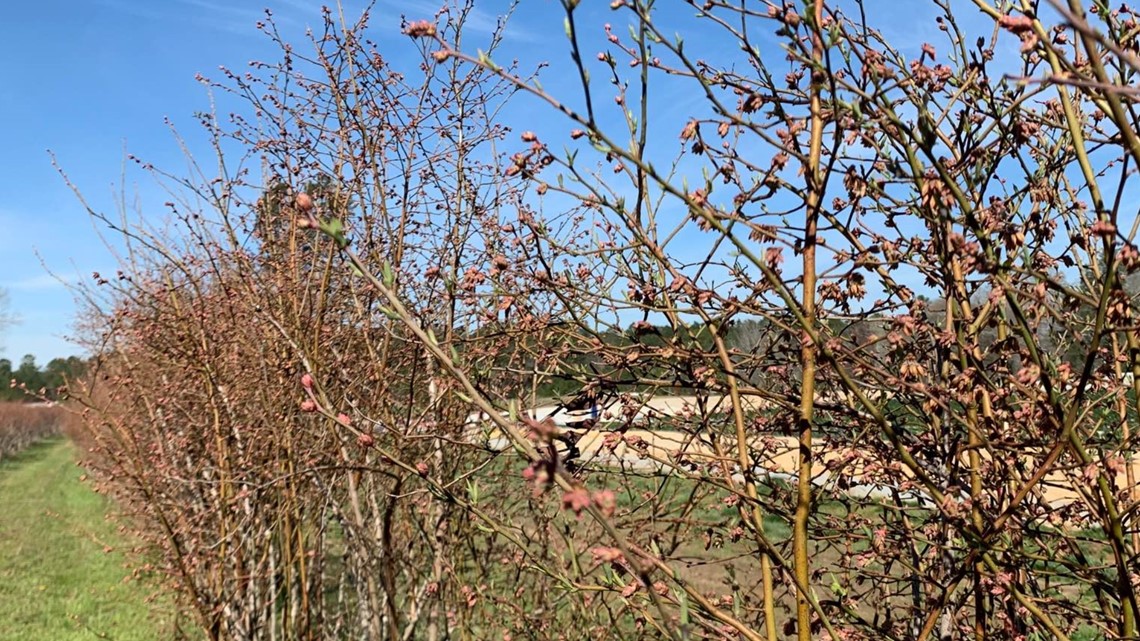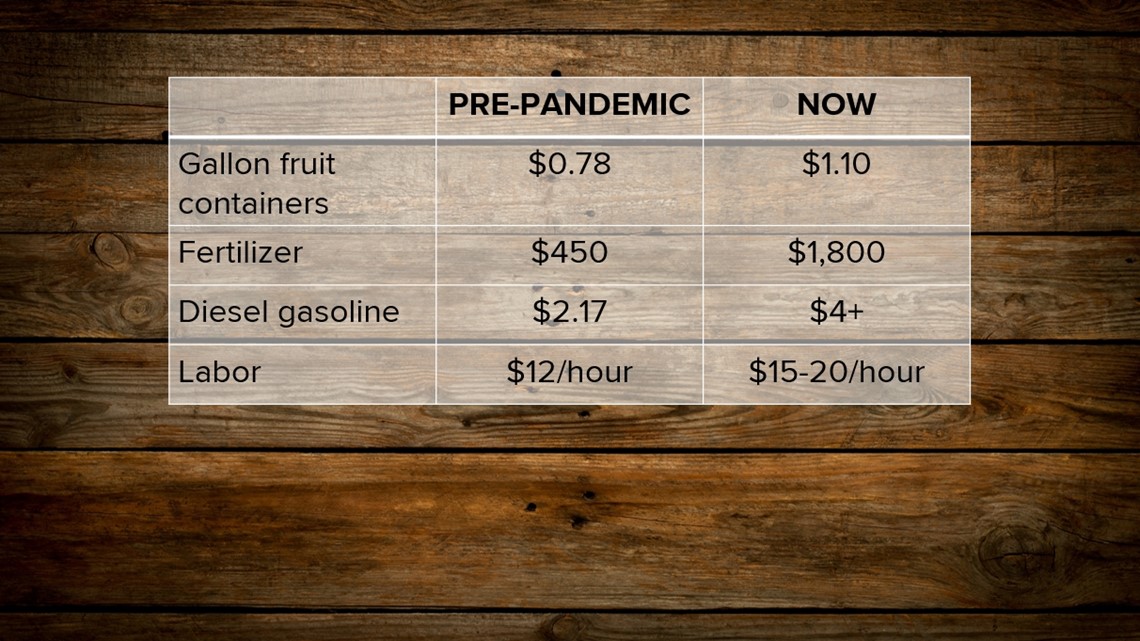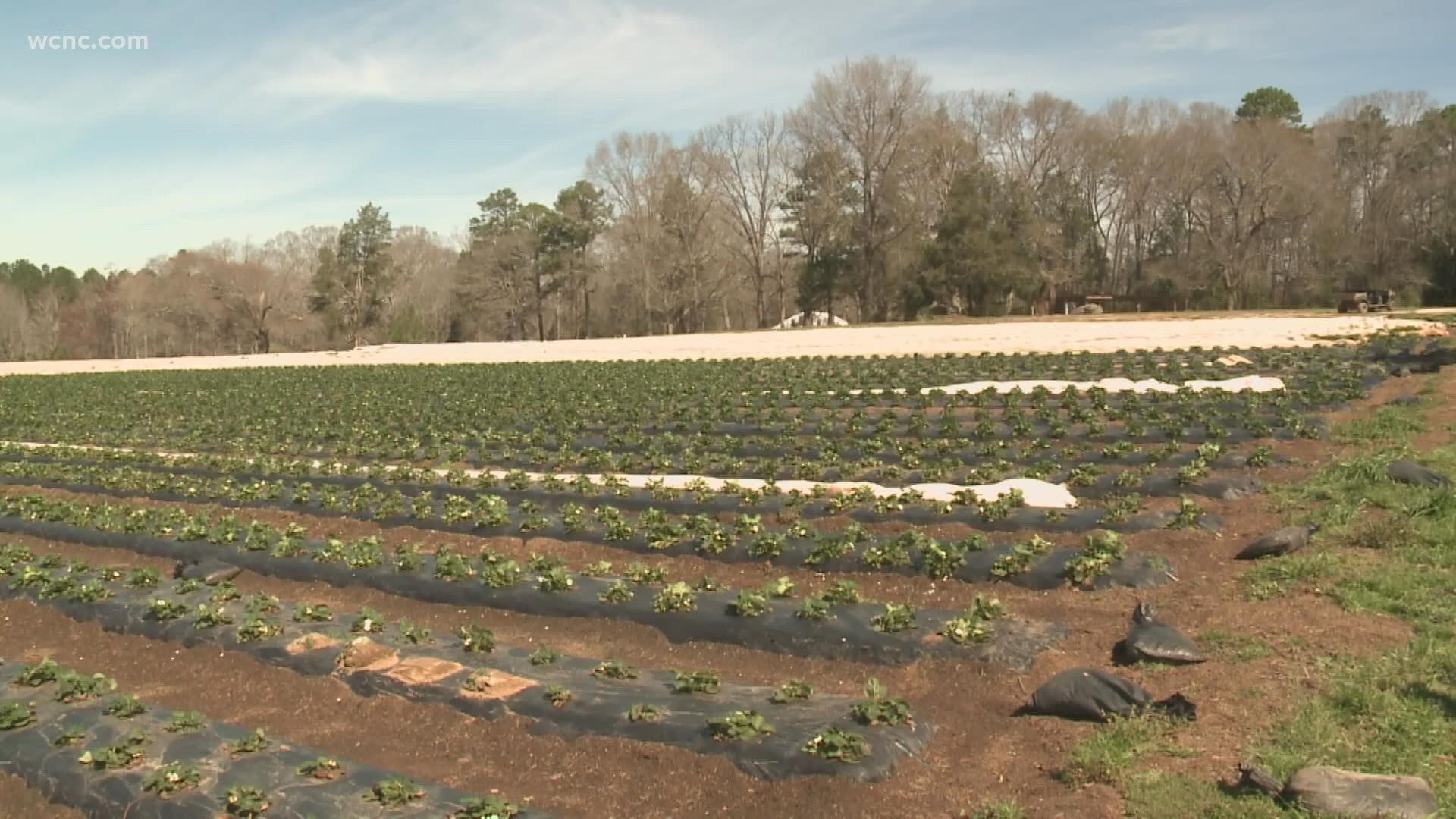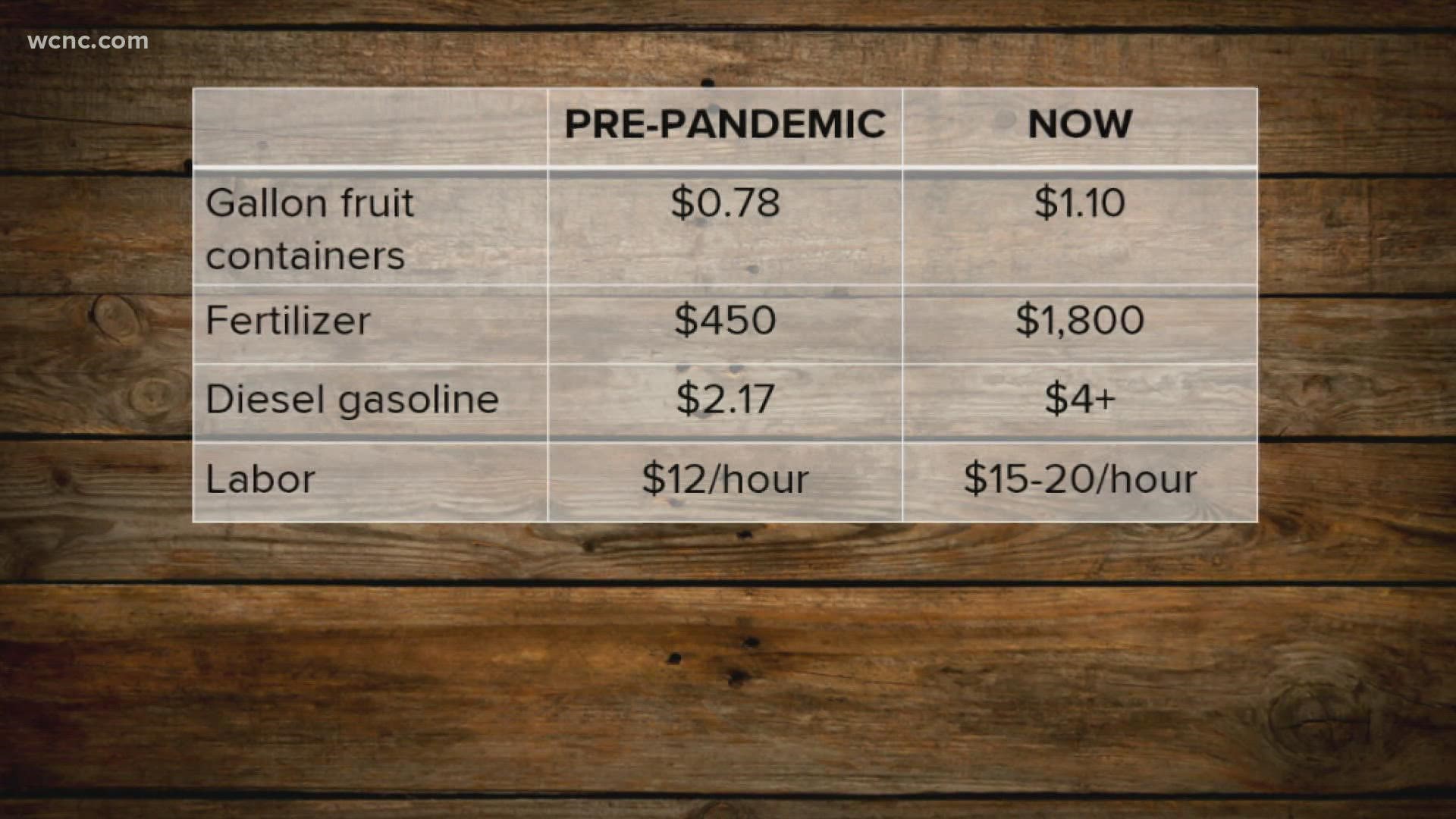LANCASTER, S.C. — Farmers in the Carolinas are assessing crop damage after a late-season deep freeze this past weekend.
When temperatures dropped to 20 degrees Sunday morning in the Charlotte metro, some crops that were unable to withstand the freezing temperatures were lost for the rest of the season.
At The Ivy Place, a farm in Lancaster, South Carolina, 80% of the blueberry crop was lost. Unfortunately, blueberry crops only bloom once per year and do not have a second chance at recovery.
“What made it bad was the length of time that it was as cold as it was, and where the stage of the plants were. They were early this year," said Stuart Graham with the Ivy Place.
The freezing temperatures combined with gusty winds, meant it felt like 14 degrees in Lancaster early Sunday morning.


The same farm lost about 50% of their strawberry blooms, crops they hope could rebloom later. If this happens, they will be able to recover at least some of the lost inventory.
On Facebook, The Ivy Place said they spent five days covering - and in some cases, double covering - crops to prepare for the cold temperatures. The weekend of freezing temperatures was made worse by recent warmth, which prompted some plants to begin blooming ahead of the freeze.
The farm said their tomato crops "amazingly" survived.
At Hall Family Farm, also in Lancaster, they are warning of a delayed start to their strawberry picking season.
"We lost nearly 100% of the blooms under single covers and about 50% of the blooms under double covers," they wrote on Facebook. "Probably we will have a small number of berries when we open, then a gap before berries from new blooms arrive."
Hall Family Farm called it the "worst strawberry loss in 15 years."
It is still too early to know the financial impacts of this weekend's freezing temperatures.
Historic records of devasting freezes
The National Oceanic and Atmospheric Administration (NOAA) tracks the economic impacts of natural disasters, including those disasters caused by freezing temperatures.
Between 1980 and 2021 in the Carolinas, NOAA recorded three freezing-temperature events which each resulted in at least a billion dollars freezing of financial impact. (In this database, NOAA only accounts for disasters that cause over a billion dollars or more in damage.)
March 2017
Both South Carolina and North Carolina were impacted by a March 2017 freeze observed across the South.
"Mid-March freezes are not climatologically unusual in the Southeast, however many crops were blooming 3+ weeks early due to unusually warm temperatures during the preceding weeks," NOAA explains in their assessment of the March 2017 event. "Damage was most severe in Georgia and South Carolina. Crops most impacted include peaches, blueberries, strawberries and apples, among others."
Across the South, the event resulted in a loss of $1.1 billion.
April 2007
The Carolinas were again part of a late-season freeze in April of 2007.
"Widespread severe freeze over much of the east and midwest, causing significant losses in fruit crops, field crops (especially wheat), and the ornamental industry," NOAA explains. "Temperatures in the teens/20s accompanied by rather high winds nullified typical crop-protection systems."
The event resulted in a loss of $2.8 billion worth of crops nationwide.
December 1983
A weeklong severe freeze in December of 1983 resulted in 151 deaths and an economic loss of $5.7 billion.
"Severe freeze damages citrus crops across central/northern Florida," NOAA explained.
Total loss in the Carolinas
Between 2021 and 1980, when NOAA began its database, South Carolina has seen an economic impact between $500 million and one billion dollars from freezing temperatures. In that same time period, North Carolina saw an economic impact between $250 million and $500 million.
NOAA estimates the Carolinas sees a billion-dollar freeze event once every decade.
Inflation Impacts
In addition to financial impacts from the weather, farmers are also dealing with rising costs caused by inflation.
"Pretty much everything has gone up," Stuart Graham with the Ivy Place said. "We’re going to have to make changes to the prices that we charge to accommodate that."
The Graham family doesn’t know by exactly how much their own prices will increase this season – but they know they have no choice but to raise them.


I think everybody is seeing it, whether they’re in farming or whatever they do," said Graham.
Contact Indira Eskieva at ieskieva@wcnc.com and follow her on Facebook, Twitter and Instagram.


